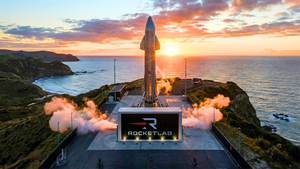As the price of eel in Japan hits a record high, research on the cultivation of artificial eel seedlings has received good news. The cost has dropped by 95% (about 1,800 yen per eel) and has made a significant leap towards mass production of cultured seedlings.

TOKYO, JAPAN (Merxwire) – Japanese eel-related dishes are widely loved by gourmets at home and abroad and are an essential summer cooking ingredient in Japan. Japan’s domestic eel fishing needs to be improved, and overseas imports have decreased, resulting in insufficient eel supply. However, the weakening of the Japanese yen has intensified the surge in eel market prices, with the unit price per kilogram reaching 5,371 yen in 2023, a record high. At a time when eel prices are rising, a research institution affiliated with the Japan Fisheries Agency announced that the cost of cultivating artificial eel seedlings has dropped to about 1,800 yen per eel, which is about 95% lower than the early stage of the research (about 40,000 yen per eel) and has made a significant leap towards mass production of cultured seedlings.
Eel is a representative ingredient of Japan’s essential summer festivals. However, because eel fry depends entirely on natural resources, the amount of fishing affects the market price. Since 1990, the number of eels caught in Japan has dropped sharply, from 30 to 40 tons per year to 10 to 20 tons. In addition, originally, large quantities of eels were imported. Still, due to the reduction of resources and the promulgation of relevant regulations, the import volume decreased rapidly, causing the price of eels to rise sharply. In addition, the Japanese yen has continued to fall in recent years, causing the import price of eel to soar sharply.
The Japan Fisheries Agency has invested in a commercial mass production system demonstration project for eel fry since 2017 and has actively developed artificial cultivation and cultured fish fry technology to achieve mass production goals and a stable supply of cultured fish fry. The cost of raising artificial eel seedlings has dropped to about 1,800 yen per eel, an overall decrease of about 95% from about 40,127 yen in the early stage of the study (2016). Although the cost of artificial fry is still higher than that of natural fry (180 to 600 yen per fish), labor costs will continue to decrease, and the technology will be popularized among private enterprises, which is expected to achieve the goal of large-scale mass production.

The research carried out technological development from spawning, hatching, and breeding to breeding, which reduced the cost of artificial breeding by 95% from 40,127 yen at the beginning of the research (2016). At present, about 2 million fertilized eggs are successfully obtained every week, and the number of healthy hatching fry is increasing, and it is expected to supply hatching fry throughout the year. Newly developed optimized feeds provide better breeding results for survival and growth. Progress has also been made in the breeding space, with the number of fries produced per tank increasing from 250 (2016) to 1,000 (2023), quadrupling the number of fish produced in the same breeding space.
As per the legend, eels are a traditional food used to combat summer fatigue in Japan. However, with the rapid decline in eel resources, Japan is taking proactive steps. It is actively developing culture seedling cultivation technology and inviting other countries to join in establishing eel breeding management organizations. These efforts aim to manage, protect, and ensure the sustainable use of eel resources, reassuring eel lovers.





